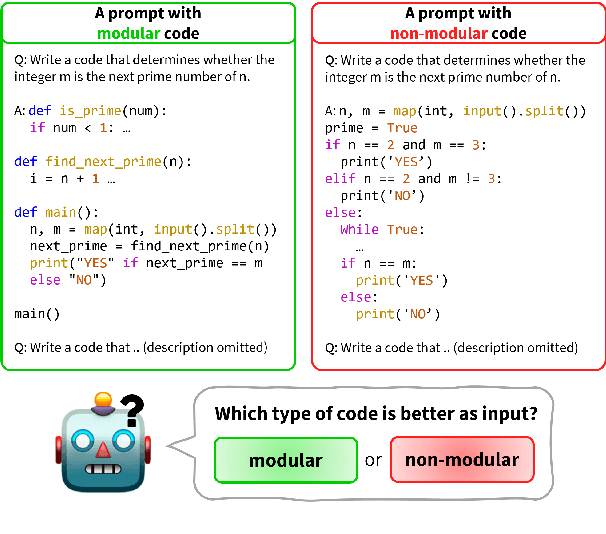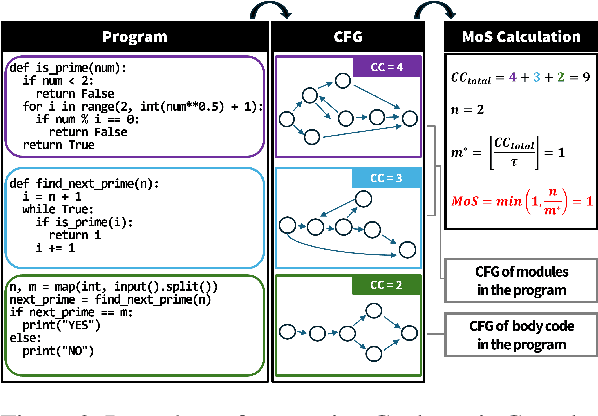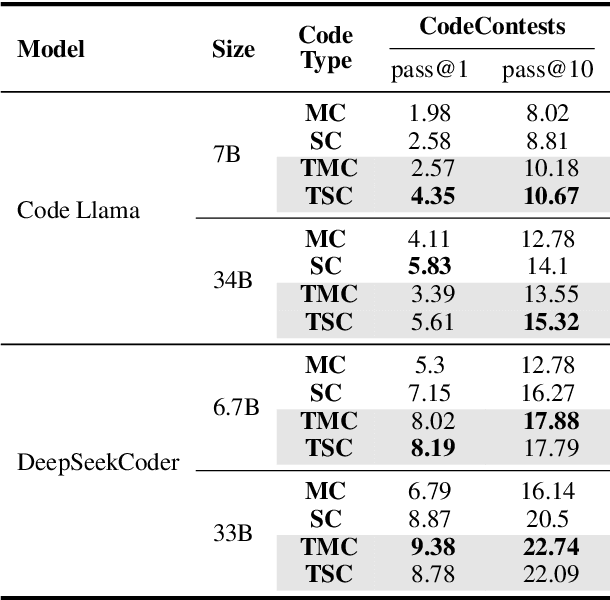Ki Jung Seo
Revisiting the Impact of Pursuing Modularity for Code Generation
Jul 16, 2024



Abstract:Modular programming, which aims to construct the final program by integrating smaller, independent building blocks, has been regarded as a desirable practice in software development. However, with the rise of recent code generation agents built upon large language models (LLMs), a question emerges: is this traditional practice equally effective for these new tools? In this work, we assess the impact of modularity in code generation by introducing a novel metric for its quantitative measurement. Surprisingly, unlike conventional wisdom on the topic, we find that modularity is not a core factor for improving the performance of code generation models. We also explore potential explanations for why LLMs do not exhibit a preference for modular code compared to non-modular code.
 Add to Chrome
Add to Chrome Add to Firefox
Add to Firefox Add to Edge
Add to Edge